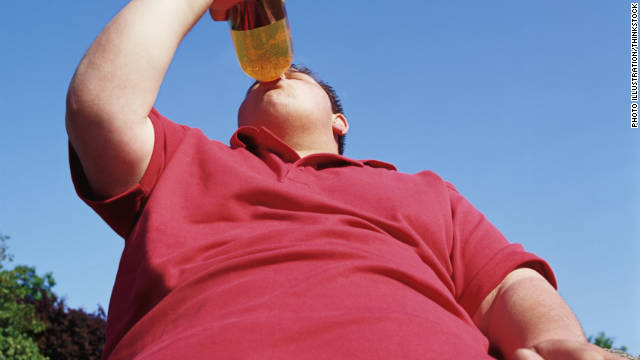Seven Traits That May Be Keeping You Overweight!
Being overweight not only affects your health but also your self-esteem. The problem is you want to lose weight but something is preventing you. Maybe IT'S WHAT'S EATING YOU!!!
The fact is a lot of people look at being overweight or obese as a weakness or lack of willpower, and medically this is diagnosed as a disease; over 55% of the population is overweight or obese and it is a growing epidemic.
While obesity may indeed be regarded as a disease instead of a case of 'having no willpower,' you still may find yourself falling into destructive eating patterns that are influenced by your mood.
Though there is no scientific research to support the seven basic traits that Lori and I are going to talk about, however, there is much evidence to support the relationship between mood and food, therefore, consider the following behaviors and see if you identify with any of them:
1) The Emotional Eater.
The Emotional Eater looks to food for comfort. When stressful feelings occur she reaches for food to relieve these painful emotions. Food brings back feelings of security or carefree times. The only problem is that the comfort feelings she experienced while eating were only temporary, and are now replaced with feelings of self-disgust.
2) The Unrealistic Overachiever.
The Unrealistic Overachiever is always unsatisfied with her results. No matter how much she does it's never enough. If she loses five pounds it should have been ten. She also has the 'all or nothing syndrome' if she eats one cookie then she's a failure. And she wants to lose it all now. It didn't matter that it took her six years to gain that extra 20 pounds, she wants to shed it in one month. She has trouble meeting her goals because her expectations are too high. These thoughts can make her run to the refrigerator because she becomes disappointed with herself.
3) The Postponer.
The Postponer will put her life on hold until she loses weight. When I lose 30 pounds I will (organize my closet or I will look for a new job... you fill in the blank). However, she isn't able to meet her weight loss goal because she isn't comfortable with the expectations she has placed on herself when she loses the weight. Food has become a crutch; it helps her to keep the weight on so she doesn't have to reach her goal and address other issues in her life.
4) The Sabotagee.
The Sabotagee allows herself to be sabotaged by friends and loved ones who hinder her weight loss efforts. Maybe her husband likes her overweight due to his own insecure feelings of losing her, or maybe her girlfriends have become jealous by her success. Her husband or friend may encourage gatherings around food to make sure the Sabotagee keeps the weight on.
5) The Defeatist. The Defeatist believes she has no discipline with her eating. She sets herself up for failure by going into a party saying 'There is no way I will be able to avoid overeating.' She thinks she doesn't have the willpower to control what and how much she puts in her mouth. By having a defeatist attitude she lives up to her own expectations by gorging herself at the party.
6) The Avoider. The Avoider declines invitations to go to social gatherings because she doesn't like the way she looks and thinks 'When I lose the weight I'll start going out.' However, this mentality can have a rebound effect while everyone else is enjoying themselves, she's home alone and depressed. The Avoider uses food to subdue her feelings of loneliness. This prolongs her agony and continues to foster her social isolation.
7) The Codependent.
The Codependent's life revolves primarily around food. Codependency is usually associated with being dependent on another person, but the codependent eater may consider food her best friend. When problems arise or when she's lonely, she can always turn to food. It is non-judgmental and always there for her. This can create a vicious cycle because after overeating she becomes depressed and thus returns to overeating.
These behaviors are not set in stone and you can fall into more than one of these categories. And these traits are not the only feelings or situations that can cause a person to overeat. But many people can identify with disappointment and other negative feelings as triggers for overeating.
While becoming aware of your eating patterns is a good first step, the next step is to identify the situations that cause you to overeat. Seeking professional advice is an option, especially if you find it too difficult to address your specific issues.
For many, food is like an addiction and it's the only addiction that they have to learn to live with in moderation. 'But their comfort is also their addiction. Sometimes it helps if they can give the power over to someone else, either a psychotherapist, dietitian or exercise physiologist. Let them make the choices for you for a while because sometimes it's just too overwhelming to do it for yourself.'
With or without outside help, getting started doesn't have to be overwhelming.
1) When making behavioral changes do them one at a time.
Don't overdo it so you give up. To regain control of your eating, take simple steps such as bringing a vegetable platter to a party or calling a restaurant ahead of time to make sure they offer low-calorie meals. And make exercise fun. We have talked about this. For example, at lunch instead of sitting around go for a short walk (5 minutes is fine in the beginning). Then work your way up to walking a half-hour or possibly even the whole hour. Pair off with a workout buddy; this will help to motivate you when you don't feel like working out.
2) Maintain a positive attitude.
It will help you overcome doubts, fears and emotional concerns that can cause overeating. Remove negative words, such as never or can't from your vocabulary. Replace them with positive, empowering words, such as I can and I will and say it out loud. For example, instead of saying, 'I'll never reach my goal,' say, 'I already lost eight pounds, and I will continue to lose until I reach my goal.' A good technique to assist you in achieving your goal is to write down on a piece of paper - why you want to lose weight and that it will take time. Update it frequently, especially when you receive a compliment or fit into a smaller size.
3) Be patient with yourself.
Remember, you didn't gain the weight overnight so you can't expect to lose it overnight either. When you start feeling impatient or discouraged try to get some exercise to change your mood. Get those endorphins flowing. Lift small weights at home or jump rope, just start moving. If you become upset because you only lost eight pounds, pull out that 5-pound sack of potatoes from the kitchen and walk around with it for a while, then you'll realize how much weight five pounds actually is!
4) Choose your own monitoring system.
'The best weight loss programs are ones where you can check in on a daily basis whether by email, phone calls or physically. The next step is to try to go to a weekly meeting and sometimes it's monthly, but if it's not daily you've got to write down what you ate, your mood and activity level, and try to do this on a daily basis,' says Blackburn. If you don't have a system in place, read on.
5) Develop a support system.
Find people who share your interest. Create your own support group.. customized to your needs... your family, friends, the TSFL support calls, whatever.. just have a support group or support plan in place. It may seem difficult to get a support group started, but it really isn't. There's nothing that helps more than to sit in a room and have people say I know what this is like and I go through that, too.
Reward yourself when you meet a goal. Try setting a goal for the day or week or month and when you achieve what you contracted with yourself, buy a new outfit or CD, or get a massage. But just don't go out to a really big dinner!
-
Follow These Tips To Succesfully Lose Weight.
If you’re reading this, you probably want to lose weight.
-
Surprisingly Simple Ways To Get Rid Of Belly Fat
If you take a closer look into the market today, there are so many way
-
Weight Lose After Pregnancy
One of the most beautiful and interestin
-
Getting On A Healthy Weight Loss Diet
Getting on a healthy weight loss diet is one of the most important pr
-
What You Should Know About a Diet Supplement Review
I read reviews with an open mind and die
-
A Complete Guide To Weight Loss Exercise
Loosing weight in a healthy manner is not the function of some pills p
- DON'T MISS
- Coffee holds a secret about how to eat healthy
- Weight Loss Online Plan
- The Body Doctor: Your Adult And Child Dietitian In Sydney
- The Most Effective Way Of Shedding Weight
- If You Are Searching For Home Fitness Equipment Make Sure You Get The Best Merchandise
- Over 110 Cardio Workout Ideas
- Dr. Dion Presents: The Healing Power Of Love
- The Power Of Rapid Weight Loss Diets Program To You
- Get Rid Of Fat By Changing Your Mind
- Pros to the Showtime Professional Rotisserie Grill




